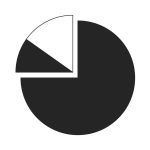DEA Considers Regulations on the Prescribing of Controlled Substances via Telemedicine
|
Getting your Trinity Audio player ready...
|
The DEA conducted a two day listening session last week to receive practitioner comments on regulations relating to the prescribing of controlled substances via telemedicine. Transcripts of the public comments are available for viewing at this link: https://www.deadiversion.usdoj.gov/Telemedicine_listening_session.html.
According to reporting by Fierce HealthCare, the listening sessions were held in response to a backlash from doctors and telehealth groups after the DEA released proposed rules in February, 2023 that would have reinstated the restrictions that existed before the COVID era on the prescribing of controlled substances via telehealth. In particular, the proposed rule would mandate that Schedule 2 medications or narcotics be prescribed in-person and Schedule 3 medications or higher could be prescribed for 30 days via telehealth but would require an in-person visit prior to refill. Fierce HealthCare reported that the DEA received a record 38,000 comments on its proposed telemedicine rules, which were among the highest ever received in DEA history.
The American Telemedicine Association (“ATA”) has opposed the DEA’s February, 2023 position, asserting that the DEA’s plans will “simply limit. . . . access to legitimate health care”. See ATA’s March 28, 2023 letters to the DEA at this link, in which the ATA submitted comprehensive recommendations regarding the proposed rules: https://www.americantelemed.org/press-releases/ata-action-submits-comprehensive-recommendations-to-dea-on-proposed-rules-regarding-remote-prescribing-of-controlled-substances/.
The ATA has advocated for a special registration process for telemedicine prescribing of controlled substances without a prior in-person visit based on seven key tenets, stated in its press release attached here:
- The Special Registration process should work in conjunction with the existing registration process.
- Telemedicine providers should not be required to maintain local addresses in every state where they practice.
- Special Registration should include the elements DEA needs to monitor for illegitimate practitioners and illegal prescribing practices.
- Special Registration should not be limited to any specific specialty or treatment condition. Schedule II prescribing could involve additional oversight but should not have additional restrictions.
- Dispensers (pharmacies and pharmacists) should be able to identify legitimate prescribers who have a current Special Registration.
- The location of the patient should not require any registration unless otherwise required because controlled substances are dispensed or administered at that site.
- The Special Registration process should not place any arbitrary limits on a clinician’s ability to practice within the scope of their authority.
According to Fierce HealthCare the DEA was originally mandated fifteen years ago within the Ryan Haight Act to develop a special registration process for remote prescribing, which was mandated again by Congress in 2018, but the DEA failed to act on both occasions. The ATA and other advocates are pushing the DEA to follow through on the prior mandates to keep COVID-era telemedicine flexibilities in place.
The Silicon Valley Digital Health Blog will continue to follow this issue as it develops. Clearly, the DEA’s next steps will have a tremendous impact on patient access to telemedicine going forward.
 Fixed and Flat Fees
Fixed and Flat Fees Fractional Fees
Fractional Fees Subscription Fees
Subscription Fees Hourly Fees
Hourly Fees